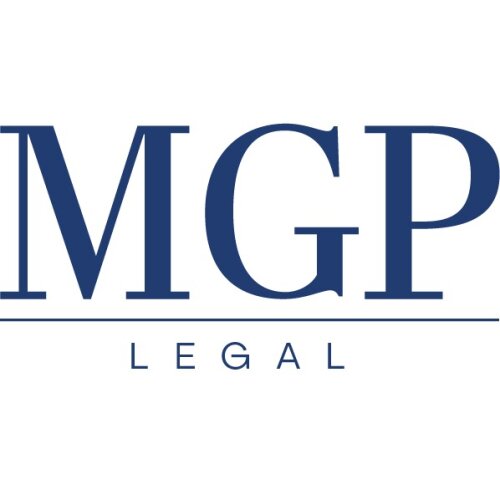Best Corporate Governance Lawyers in Florence
Share your needs with us, get contacted by law firms.
Free. Takes 2 min.
List of the best lawyers in Florence, Italy
About Corporate Governance Law in Florence, Italy
Corporate governance refers to the systems, rules, and processes by which companies are directed and controlled. In Florence, Italy, corporate governance law plays a crucial role in regulating how companies operate, how decisions are made, and how executives and boards are held accountable. While Italian corporate governance rules align with European Union directives and national regulations, there are also regional specificities within Florence and the wider Tuscany region. These legal frameworks exist to protect shareholders, employees, suppliers, customers, and the broader public interest, ensuring transparency, fairness, and efficiency in the management of businesses.
Why You May Need a Lawyer
Corporate governance can be complex, and legal advice is frequently required in several situations. Common scenarios include establishing a new business and choosing the appropriate company structure, drafting or amending company statutes and shareholder agreements, resolving disputes among stakeholders, navigating mergers or acquisitions, ensuring compliance with reporting and transparency obligations, and addressing conflicts of interest or breaches of directors’ duties. Engaging a lawyer experienced in corporate governance law is also critical when companies face regulatory investigations or require advice on best practices for board composition and executive remuneration.
Local Laws Overview
Italian company law, governed chiefly by the Italian Civil Code, provides the main legal foundation for corporate governance in Florence. Key legal forms include the Società a Responsabilità Limitata (Srl), Società per Azioni (SpA), and Società in Nome Collettivo (Snc), each with distinct requirements concerning governance structures, shareholders’ rights, and regulatory compliance. Tuscany region and Florence-specific regulations further shape governance, especially regarding local business registries and tax obligations. Corporate transparency, board of directors' responsibilities, related party transactions, and disclosure obligations must all comply with national and EU standards. Failure to adhere to these rules can result in penalties, legal disputes, or even dissolution of the company.
Frequently Asked Questions
What is corporate governance?
Corporate governance encompasses the mechanisms, relations, and processes through which companies are managed and controlled. It defines the roles and responsibilities of different participants in a corporation, especially the board of directors, management, and shareholders.
Is corporate governance mandatory for all companies in Florence?
All registered companies, regardless of size or sector, must follow corporate governance rules defined by Italian law. However, the depth of governance requirements varies depending on company type and size.
Who regulates corporate governance in Florence, Italy?
Corporate governance is regulated primarily by the Italian Civil Code, national regulators such as the Commissione Nazionale per le Società e la Borsa (CONSOB) for public companies, and local chamber of commerce rules.
What are the responsibilities of company directors?
Directors are legally obligated to act in the interest of the company, respect statutes and bylaws, comply with disclosure requirements, manage risks, and avoid conflicts of interest. They are liable for damages caused by breaches of these duties.
What legal structures are most common for corporations in Florence?
The Società a Responsabilità Limitata (Srl) and Società per Azioni (SpA) are the most common. Srl is often chosen for small and medium enterprises, while SpA is preferred for larger businesses or those seeking to be publicly listed.
How are shareholder rights protected?
Italian law grants shareholders rights including voting at general meetings, receiving dividends, accessing company records, and legal recourse in case of mismanagement or unfair treatment.
What reporting obligations do companies have?
Companies must file annual financial statements, keep proper accounting records, and submit reports to authorities such as the local Chamber of Commerce. Public companies have additional reporting and disclosure obligations as per CONSOB regulations.
What are the consequences of non-compliance with governance laws?
Non-compliance can result in administrative sanctions, civil liability, criminal charges, or forced company liquidation. It may also damage the company’s reputation and credibility.
How can conflicts among shareholders be resolved?
Disputes are typically addressed through negotiation, mediation, or arbitration depending on the company’s bylaws. If necessary, cases can be brought before the Civil Courts of Florence.
Can foreign investors or companies set up a corporation in Florence?
Yes, foreign individuals and entities can establish a business in Florence, following the same legal requirements as local residents. Legal counsel is recommended to navigate procedures regarding taxation, corporate governance, and local regulations.
Additional Resources
Individuals seeking more information or assistance can consult several resources, including:
- The Florence Chamber of Commerce (Camera di Commercio di Firenze) for company registrations and information
- CONSOB for regulations concerning public companies
- The National Bar Association (Consiglio Nazionale Forense) for finding accredited legal professionals
- The Italian Ministry of Economic Development for business legislation and guides
- Local business associations such as Confindustria Firenze for networking and compliance assistance
Next Steps
If you require legal assistance with corporate governance in Florence, begin by gathering all relevant documents about your company and the specific issue at hand. Contact a licensed corporate lawyer or legal firm experienced in Italian and regional corporate law. Schedule a consultation to discuss your needs and receive tailored advice. It is often helpful to prepare questions in advance to maximize the value of your session. Keep informed about your rights and obligations, and consider ongoing legal support as your business grows or as regulations change.
Lawzana helps you find the best lawyers and law firms in Florence through a curated and pre-screened list of qualified legal professionals. Our platform offers rankings and detailed profiles of attorneys and law firms, allowing you to compare based on practice areas, including Corporate Governance, experience, and client feedback.
Each profile includes a description of the firm's areas of practice, client reviews, team members and partners, year of establishment, spoken languages, office locations, contact information, social media presence, and any published articles or resources. Most firms on our platform speak English and are experienced in both local and international legal matters.
Get a quote from top-rated law firms in Florence, Italy — quickly, securely, and without unnecessary hassle.
Disclaimer:
The information provided on this page is for general informational purposes only and does not constitute legal advice. While we strive to ensure the accuracy and relevance of the content, legal information may change over time, and interpretations of the law can vary. You should always consult with a qualified legal professional for advice specific to your situation.
We disclaim all liability for actions taken or not taken based on the content of this page. If you believe any information is incorrect or outdated, please contact us, and we will review and update it where appropriate.












